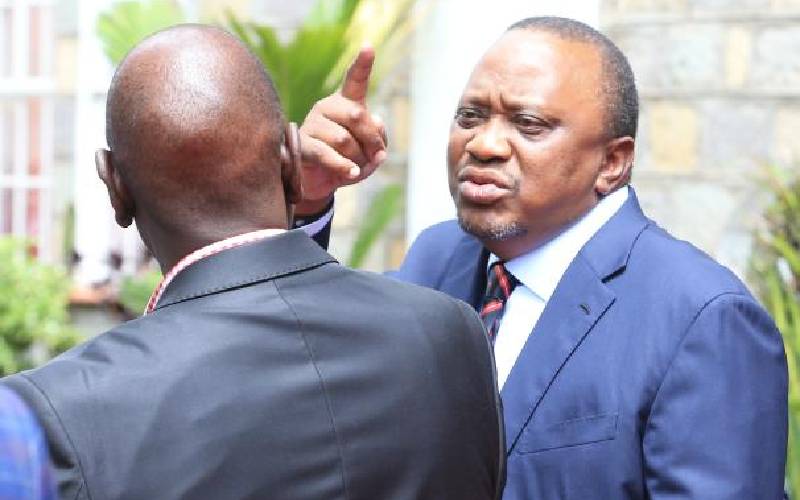×
The Standard e-Paper
Stay Informed, Even Offline

President Uhuru Kenyatta and Deputy President William Ruto hold the top most political offices in Kenya today. They are the current holders of the Presidency, which represents a symbol of unity, stability and progress, according to the 2010 Constitution.